Artist: scissor shock WTF Album: psychic existentialism Tags: frantic, progressive, collage, hyperactive, atonal WTF Quality: non-idiomatic uncategorizable music using fairly simple sounds that rolls and rolls round and round and rarely repeats itself Lifespan: 2003 - Country: USA 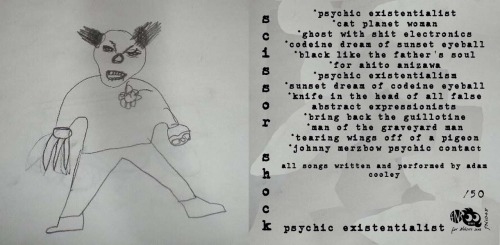 welcome to psychic existentialism, a 13 course 32 minute discourse on the secret techniques of mind warping, neuron juggling, wave honing, future reading, phantasm bathing, rock hounding, and exotic tastes. In the first course you will be escorted by swami E. Gulzaiye into the isolation hydroponic chamber where mental beams protruding from cyclopean driblet dispensers sprinkle creamy Kegel sauce upon your law of thermodynamics. Following your initiation into the basic fundamentals of the training procedure, you begin the introduction of the hypnotic trance.  From January to February 1817, San Martín led the Army over the Andes in an audacious move that turned the tables on the royalists. The salad is divine. Breathe and feel the one-ness. Students should understand the following issues: quick panning meta-poly-morpho-rhythm diving atmosphere habitats the capitalist system goes from a complementary symbiosis to a parasitism that kills the host audial hue Connoisseurs who have ridden the Puma concolor through the realm of the "shrine of salvaged junk" should be well familiar with some of the taste waves on display. These are made by obstructing the glottis (the space between the vocal cords) or oral cavity (the mouth) and either simultaneously or subsequently letting out air from the lungs. This time, attention has been paid to the minute details of p-branes, wooden mallets, 10 year bond yields, hard protein called keratin, ad infinitum. Be prepared for increased rainfall, rising sea levels, and tropical cyclones. A Pâté made from dinosaur fossils, giant millipede legs, squid ink sac, and rubber tree butter will be served on a dish of very delicate porcelain in the style of the Ming emperor Chenghua. Upon mastery of these techniques the initiate will be forced to consume sugarcane to stimulate vomiting and defecation, as a way of internally cleansing their body. We survey some aspects of the theory of the integrated density of states (IDS) of random Schroedinger operators. Therefore: • Fire setting • Hydraulic mining • Reverse overshot water-wheels  Learning Objectives: 1. guitar 2. here kitty kitty kitty 3. Hawaiian alphabet 4. cut Variations in the exploratory behaviour of Great Tits (Parus major) have been found to be linked with a gene orthologous to the human gene DRD4 (Dopamine receptor D4) which is known to be associated with novelty-seeking behaviour. Specific Tasks Accomplished: 1. Students will demonstrate a mythical union between a lion and a human princess 2. Students will demonstrate establishment of decentralized guerrilla commands 3. Students will demonstrate catalytic purification by hydrodemetallisation (HDM), hydrodesulfurization (HDS) and hydrodenitrogenation 4. Students will demonstrate dictus autem Monoecus vel quod pulsis omnibus illic solus habitavit Grading Policy: a. crack cocaine 25 % b. pastrami 75 % Total Snake 100% It goes beyond good times into the meta-critical point concerning the normative conditions of possibility for theorizing the critical-emancipatory project which concerns the addressees of and participants in processes of theoretical and practical enlightenment for dessert, utensils. http://www.mediafire.com/?b28upiail4y5a57 -Jeemobon | |
scissor shock - psychic existentialism
Emmanuel Lorien Spinelli - Lands and Genotypes
Artist: Emmanuel Lorien Spinelli
WTF Album: Lands and Genotypes
Tags: Ecoutism, Objects, Electro-Acoustic, Sound-Collage, Acoustic-Ecology, Interview/Text-Based-Material, Found-Sound, Environmental, Sound-Scape, Live-Electronics, Contemporary-Composition, Acousmatic
WTF Quality: Using people as subjects to create music with, finding musical qualities within human speech, extended use of objects and field recordings, unique editing techniques
Lifespan: 1998 -
Country: UK
Links: http://www.emalorien.com / http://www.myspace.com/emmanuellorienspinelli / http://www.myspace.com/blankimprov

I'm very proud to introduce a fascinating artist, a treasure hidden in the depths of London: Emmanuel Lorien Spinelli. A man of intriguing stories and unique approaches in unraveling them.
He's involved with various musical projects but today I would like to look at one specific project of his: "Lands and Genotypes".
With this particular project he combines soundscapes using objects and field recordings with the musical qualities in the inflections of speech to get to the heart of the perception of identities and the problems that are involved.
"Lands and Genotypes" is an act of voyeurism. Or as Emamanuel prefers to call it, "Ecoutism" - voyeurism with your ears.
Each piece is centered around a person, or a subject (or group of subjects), and built from there.
Interviews of the subject are conducted and recorded to be used as material for the piece.
Field recordings are then made of places and objects that relate to the subject.
Spinelli helps shed some light on this process, "Each sound must have a relationship, in one way or another, to the people interviewed during the composition process, and all these sounds are part of their sonorous environments, their personal soundscape. Prior to the field recordings, I always ask my interviewees to map the different locations where they usually spend most of their time and, when appropriate, sounds they remember from those places. I usually record much more material in those locations to capture other sounds they might not be aware of and seemed less obvious in order to highlight other sound-marks that are part of the sound-subjects' surroundings in a more detailed fashion."
What follows is an interview I conducted with Mr. Spinelli that starts off explaining the editing process of "Lands and Genotypes" - after the subjects and the field recordings and objects have been recorded.
It quickly sets deeper into the mind of Emmanuel Lorien Spinelli and the subjects that make up his music.
It's a beautiful and thought-provoking story and one worth reading.
So, just relax with a cup of coffee and throw on some "Lands and Genotypes" (all tracks available for free streaming here -http://www.last.fm/music/Emmanuel+lorien+spinelli/Lands+and+Genotypes) in the background and enjoy the interview.
onionpalac: Could you run through your approach in constructing your "Lands and Genotypes" pieces?
Emmanuel: Once I've got all the material, interviews and field recordings, I do two things.
I draw a map from memory where actual locations get mixed up with imaginary or sensual concrete sounds. I often use the sort of inside/outside concept. Then I spend most of my time chopping up voices. The objects that belong to the inside, like a gas pipe, air conditioner, kitchen appliances etc. and the subjects' personal objects are mixed with the field recordings of specific locations that carry meaning for my subject, such as place of birth, hang outs etc...
As for the vocal edits, I usually create a bunch of folders organized by themes for example, "ducks" or "visit to Auschwitz" (used in "Anseriformes Twins"). Then I use some randomized playlist like winamp to create random patterns and see what kind of strange associations the different "bits of interview" can convey. This is my basic techniques for editing the voices. I am very influenced by Cut-up, William Burroughs, Antonin Artaud and the surrealists poets.
onionpalac: Do you feel that listeners should understand the background of these pieces to fully appreciate them?
Emmanuel: Yes and no, indeed.
Yes because it helps make sense of what may seem abstract at first glance.
And no because I don't consider people stupid and if they don't to know the story behind it, they can create their own, which is very often even more relevant.
Nevertheless it is an unresolved question.
onionpalac: If you don't supply the background then why go through the whole process that you do? You can make it all up instead, no?
Emmanuel: It is an interesting question.
It is a necessary condition. But the process has to be truthful to have an interest for me.
It is important to me because it is a process that informs myself about myself as well.
onionpalac: Are you a voyeur yourself?
Emmanuel: YES! I am an ECOUTEUR/voyeur!
onionpalac: Do you have a background in voyeurism? Are there other voyeur activities you have been involved with?
Emmanuel: No, not really. Actually to be a voyeur you have to enjoy watching and unfortunately I don't.
onionpalac: Haha - you enjoy listening . . .
Emmanuel: Yep, indeed!
onionpalac: Could you talk about transitions? How one event or scene blends into another.
Emmanuel: Well, it is a difficult territory because I am a workaholic. I can spend up to a year and half to mix the first version of a piece. The "Anseriformes Twins" piece took 3 years.
So yeah, transitions are essentials. I can spend days on a couple of cross fades with a bunch of sounds. To be honest, I can spend a whole day trickling the button of one of my children toys in preparation for an improv.
onionpalac: The reason I ask is because I listen for transitions in music very deeply - and in music such as yours I think it's a key ingredient but you pull it off really well.
Emmanuel: Thanks, I agree. I always pay close attention to this these sort of things in other people's music as well. When a transition sucks, you loose the magic.
onionpalac: Which brings me to ask you about influences.
Emmanuel: I have two kinds of influences: on one side composers like R. Murray Schafer, John Levack Drever, Annea Lockwood, of course Jean Luc Goddard and Tarkovsky for film, and sound poets like Kurt Schwitters, the Fluxus movement, etc...
And on the other side, of course Cage, Merzbow, John Zorn (huge...) and all the free improv freaks - the obscure and delightful!
onionpalac: Do you think of film theory while piecing your work together?
Emmanuel: Not at all. Except maybe Goddard and his schizo-narrative.
The reason I say I don't think of film theory is that I don't think in terms of narrative, story, construction of meaning but in terms of "opening a wound" or maybe "a womb" where
meaning happens no matter what. I just try to highlight the paradoxical, playful, and dark moments that occur during one's self account. I think in musical terms even with the spoken words.
onionpalac: But it's all related to the subject - the person you're wrapping everything around.
Emmanuel: Yes, of course. And that's the magic thing about it. Because all these fragmented elements relate to the same subject (or group of subjects), I don't have to think about narrative.
onionpalac: And that in itself is the narrative, story and meaning.
Emmanuel: Yes, you're right. That is the narrative, in a way . . .
onionpalac: It's up to the listener.
Emmanuel: Yes, that's why I call it opening a wound because then the listener has to stitch the whole thing together on his or her own.
onionpalac: What made you come up with the whole Ecouteur and "Lands and Genotypes" idea?
Emmanuel: HA! The truth is I have been a stutterer all my life. When I was younger I used to start a sentence, get stuck, change my mind and say something else. When I started listening to people talking I realized I wasn't the only one and we all do it in a way. I just try to capture that in people. If you have this mental stutter that happens when you breathe, think and talk at the same time, then you're not that different from me.
onionpalac: Because of this you took detailed notice in speech.
Emmanuel: Yes, I had to learn to listen and reproduce.
onionpalac: Are you bilingual?
Emmanuel: Yes, French and English.
I was brought up in France but my mum (who had been brought up in the UK) always spoke to me in English. But she died in 1983. That's partly why i moved to the UK, to know more about myself. Also, she was of Jewish decent, which i didn't know until about ten years ago. So i've spoken both languages all my life but English was kind of kept hidden inside. I often realize that I know certain words without understanding where I learned them from. They're just there inside.
onionpalac: I ask because when learning another language as an adult it can open up the subtleties of speech in one's mother tongue. I wonder if that had any impact on your thinking.
Emmanuel: Yes, indeed. A huge impact. And, in fact, the core of my research is based on the idea of trans-identity in foreigners living in London.
onionpalac: "Learn a new language and get a new soul." ~Czech Proverb
Emmanuel: Of Course, and it is also having a double conscience. It is a treasure.
onionpalac: So, you would say that the root of your research is from being aware of your uncontrolled stutter and extending that onto how others do it - be it a lot less?
Emmanuel: I guess it's maybe not the root of my research but it dictated a big part of my aesthetic and process. The root of my research is really about the perception of identities, trying to understand what's at play during the process of expressing oneself, and it is about practice. How to use all these elements in order to make music.
onionpalac: So, what is the root of your study in the perception of identities?
Emmanuel: It's a long story but in a nut shell: it all started with a fascination for the stupidity of what I read in the news in France and when I discovered elements of my past that stayed hidden in my family because it was considered shameful. I realized part of my family where spitting pork under the tables at the restaurant to look like everyone else. So, I guess I try to make sense of all this crap and the roots of my research come from the fundamental curiosity and this puzzling experience. So much is hidden in all of us.
onionpalac: How do you choose your subjects?
Emmanuel: The truth is I don't. They are all average Joes.
onionpalac: Don't they ever get freaked out in the process of you in a way stalking them?
Emmanuel: Yeah, sometimes . . .
onionpalac: Yeah - you're getting your nose all up in their business. Has anyone abruptly just called it off?
Emmanuel: Yes, that happens quite regularly but usually early in the process.
onionpalac: Do you have any preferences for your subjects?
Emmanuel: No, not really but I tend to get attracted to people with strong political backgrounds. It gives me something to start with. But it deviates quickly after that.
onionpalac: What are the reactions of the subjects when they hear the final product - the music?
Emmanuel: They are often surprised by the things they said and don't always realize that the whole thing is edited. I guess the best is when they react to the sounds and recognize the places. Some of them get quite emotional, like the old lady who cried when she heard the harbor sounds or amused when the twins heard the sound of the washing machine and the lady from the shop swearing. Their mum was staring in the void when listening to the ducks and said, "You know, I know these ducks." I said, "Well, your sons said their first words at that location." She looked like she had a moment of revelation and she started laughing. She was great, very sweet.
onionpalac: Thats a great story - the after effect!
Emmanuel: Yep, these are often the best moments.
onionpalac: So, you sit down with the subjects for their first listen?
Emmanuel: Yes, I normally bring my laptop, put a big pair of headphone on their ears and play a stereo reduction of the piece . It kind of isolates them so I don't get punched half way through!
onionpalac: How do you approach your subjects to do this? What do you say? I can't imagine . . .
Emmanuel: I don't say anything in particular. It depends on the person. Some are very sensitive and others don't give a rat's ass. Maybe they just think they'll be famous.
onionpalac: Britain's Got Talent!
Emmanuel: Can you imagine!
onionpalac: "Do you mind if I poke around your life and record everything about you?" kind of thing?
Emmanuel: Yeah man, "I'm that freak everyone is talking about! I'm featured in a fucked up experimental piece!"
onionpalac: Haha! Really, I think it's nuts how you get these people to agree!
Emmanuel: Nutters I tell you!
onionpalac: So, would you do it?
Emmanuel: Do what?
onionpalac: Would you be a subject for your own work?
Emmanuel: That's THE question!!
onionpalac: There it is!
Emmanuel: Well, yes i would. Obviously, I can't do it myself.
And yes, I'm terrified to do it.
onionpalac: You would need a complete stranger to do it.
Emmanuel: You're right, but who? I need someone who understands the work.
onionpalac: Maybe one of our readers out there can volunteer to take on such as task. You can be sure that we'll be following it the whole way through.
And on that note I believe we can wrap it up.
Thanks Emmanuel, it's been a pleasure.
Emmanuel: Same here. Till next time!

Please take time to investigate these engaging pieces of strangers' lives.
Step into the soul of someone through aural transportation.
These pieces are true experiences in themselves.
They can enlighten and cast discovery upon yourself and the life around you.
And while you're at it please dive into the rest of Emmanuel Lorien Spinelli's music from his website. He has a lot of it and it may seem overwhelming.
I suggest his improv unit Blank Ensemble, made up of:
Emmanuel Lorien Spinelli: Guitars, Lap-top, Midi-guitar, Toys & Objects + Live Electronics
Tom Slater: Percussions, Samplers, Folios
Jean-Michel Unglas: Chapman Stick, Handsonic, Objects
Mickey Kirkpatrick: Flutes, Melodica, Objects
Charlie Richardson: Saxophone, Clarinet, Objects
Their album "Small Mechanisms" is a roller-coaster of object sounds mixed with tight free improv.
Find that here - http://www.last.fm/music/Emmanuel+lorien+spinelli/Small+Mechanisms
"Lands and Genotypes" can be streamed and partially downloaded from Last.FM:
http://www.last.fm/music/Emmanuel+lorien+spinelli/Lands+and+Genotypes
You can also immerse yourself with the ideas of the album at his myspace page:
http://www.myspace.com/emmanuellorienspinelli
Further discussion of this artist and album can be found: HERE
-onionpalac
WTF Album: Lands and Genotypes
Tags: Ecoutism, Objects, Electro-Acoustic, Sound-Collage, Acoustic-Ecology, Interview/Text-Based-Material, Found-Sound, Environmental, Sound-Scape, Live-Electronics, Contemporary-Composition, Acousmatic
WTF Quality: Using people as subjects to create music with, finding musical qualities within human speech, extended use of objects and field recordings, unique editing techniques
Lifespan: 1998 -
Country: UK
Links: http://www.emalorien.com / http://www.myspace.com/emmanuellorienspinelli / http://www.myspace.com/blankimprov

I'm very proud to introduce a fascinating artist, a treasure hidden in the depths of London: Emmanuel Lorien Spinelli. A man of intriguing stories and unique approaches in unraveling them.
He's involved with various musical projects but today I would like to look at one specific project of his: "Lands and Genotypes".
With this particular project he combines soundscapes using objects and field recordings with the musical qualities in the inflections of speech to get to the heart of the perception of identities and the problems that are involved.
"Lands and Genotypes" is an act of voyeurism. Or as Emamanuel prefers to call it, "Ecoutism" - voyeurism with your ears.
Each piece is centered around a person, or a subject (or group of subjects), and built from there.
Interviews of the subject are conducted and recorded to be used as material for the piece.
Field recordings are then made of places and objects that relate to the subject.
Spinelli helps shed some light on this process, "Each sound must have a relationship, in one way or another, to the people interviewed during the composition process, and all these sounds are part of their sonorous environments, their personal soundscape. Prior to the field recordings, I always ask my interviewees to map the different locations where they usually spend most of their time and, when appropriate, sounds they remember from those places. I usually record much more material in those locations to capture other sounds they might not be aware of and seemed less obvious in order to highlight other sound-marks that are part of the sound-subjects' surroundings in a more detailed fashion."
What follows is an interview I conducted with Mr. Spinelli that starts off explaining the editing process of "Lands and Genotypes" - after the subjects and the field recordings and objects have been recorded.
It quickly sets deeper into the mind of Emmanuel Lorien Spinelli and the subjects that make up his music.
It's a beautiful and thought-provoking story and one worth reading.
So, just relax with a cup of coffee and throw on some "Lands and Genotypes" (all tracks available for free streaming here -http://www.last.fm/music/Emmanuel+lorien+spinelli/Lands+and+Genotypes) in the background and enjoy the interview.
onionpalac: Could you run through your approach in constructing your "Lands and Genotypes" pieces?
Emmanuel: Once I've got all the material, interviews and field recordings, I do two things.
I draw a map from memory where actual locations get mixed up with imaginary or sensual concrete sounds. I often use the sort of inside/outside concept. Then I spend most of my time chopping up voices. The objects that belong to the inside, like a gas pipe, air conditioner, kitchen appliances etc. and the subjects' personal objects are mixed with the field recordings of specific locations that carry meaning for my subject, such as place of birth, hang outs etc...
As for the vocal edits, I usually create a bunch of folders organized by themes for example, "ducks" or "visit to Auschwitz" (used in "Anseriformes Twins"). Then I use some randomized playlist like winamp to create random patterns and see what kind of strange associations the different "bits of interview" can convey. This is my basic techniques for editing the voices. I am very influenced by Cut-up, William Burroughs, Antonin Artaud and the surrealists poets.
onionpalac: Do you feel that listeners should understand the background of these pieces to fully appreciate them?
Emmanuel: Yes and no, indeed.
Yes because it helps make sense of what may seem abstract at first glance.
And no because I don't consider people stupid and if they don't to know the story behind it, they can create their own, which is very often even more relevant.
Nevertheless it is an unresolved question.
onionpalac: If you don't supply the background then why go through the whole process that you do? You can make it all up instead, no?
Emmanuel: It is an interesting question.
It is a necessary condition. But the process has to be truthful to have an interest for me.
It is important to me because it is a process that informs myself about myself as well.
onionpalac: Are you a voyeur yourself?
Emmanuel: YES! I am an ECOUTEUR/voyeur!
onionpalac: Do you have a background in voyeurism? Are there other voyeur activities you have been involved with?
Emmanuel: No, not really. Actually to be a voyeur you have to enjoy watching and unfortunately I don't.
onionpalac: Haha - you enjoy listening . . .
Emmanuel: Yep, indeed!
onionpalac: Could you talk about transitions? How one event or scene blends into another.
Emmanuel: Well, it is a difficult territory because I am a workaholic. I can spend up to a year and half to mix the first version of a piece. The "Anseriformes Twins" piece took 3 years.
So yeah, transitions are essentials. I can spend days on a couple of cross fades with a bunch of sounds. To be honest, I can spend a whole day trickling the button of one of my children toys in preparation for an improv.
onionpalac: The reason I ask is because I listen for transitions in music very deeply - and in music such as yours I think it's a key ingredient but you pull it off really well.
Emmanuel: Thanks, I agree. I always pay close attention to this these sort of things in other people's music as well. When a transition sucks, you loose the magic.
onionpalac: Which brings me to ask you about influences.
Emmanuel: I have two kinds of influences: on one side composers like R. Murray Schafer, John Levack Drever, Annea Lockwood, of course Jean Luc Goddard and Tarkovsky for film, and sound poets like Kurt Schwitters, the Fluxus movement, etc...
And on the other side, of course Cage, Merzbow, John Zorn (huge...) and all the free improv freaks - the obscure and delightful!
onionpalac: Do you think of film theory while piecing your work together?
Emmanuel: Not at all. Except maybe Goddard and his schizo-narrative.
The reason I say I don't think of film theory is that I don't think in terms of narrative, story, construction of meaning but in terms of "opening a wound" or maybe "a womb" where
meaning happens no matter what. I just try to highlight the paradoxical, playful, and dark moments that occur during one's self account. I think in musical terms even with the spoken words.
onionpalac: But it's all related to the subject - the person you're wrapping everything around.
Emmanuel: Yes, of course. And that's the magic thing about it. Because all these fragmented elements relate to the same subject (or group of subjects), I don't have to think about narrative.
onionpalac: And that in itself is the narrative, story and meaning.
Emmanuel: Yes, you're right. That is the narrative, in a way . . .
onionpalac: It's up to the listener.
Emmanuel: Yes, that's why I call it opening a wound because then the listener has to stitch the whole thing together on his or her own.
onionpalac: What made you come up with the whole Ecouteur and "Lands and Genotypes" idea?
Emmanuel: HA! The truth is I have been a stutterer all my life. When I was younger I used to start a sentence, get stuck, change my mind and say something else. When I started listening to people talking I realized I wasn't the only one and we all do it in a way. I just try to capture that in people. If you have this mental stutter that happens when you breathe, think and talk at the same time, then you're not that different from me.
onionpalac: Because of this you took detailed notice in speech.
Emmanuel: Yes, I had to learn to listen and reproduce.
onionpalac: Are you bilingual?
Emmanuel: Yes, French and English.
I was brought up in France but my mum (who had been brought up in the UK) always spoke to me in English. But she died in 1983. That's partly why i moved to the UK, to know more about myself. Also, she was of Jewish decent, which i didn't know until about ten years ago. So i've spoken both languages all my life but English was kind of kept hidden inside. I often realize that I know certain words without understanding where I learned them from. They're just there inside.
onionpalac: I ask because when learning another language as an adult it can open up the subtleties of speech in one's mother tongue. I wonder if that had any impact on your thinking.
Emmanuel: Yes, indeed. A huge impact. And, in fact, the core of my research is based on the idea of trans-identity in foreigners living in London.
onionpalac: "Learn a new language and get a new soul." ~Czech Proverb
Emmanuel: Of Course, and it is also having a double conscience. It is a treasure.
onionpalac: So, you would say that the root of your research is from being aware of your uncontrolled stutter and extending that onto how others do it - be it a lot less?
Emmanuel: I guess it's maybe not the root of my research but it dictated a big part of my aesthetic and process. The root of my research is really about the perception of identities, trying to understand what's at play during the process of expressing oneself, and it is about practice. How to use all these elements in order to make music.
onionpalac: So, what is the root of your study in the perception of identities?
Emmanuel: It's a long story but in a nut shell: it all started with a fascination for the stupidity of what I read in the news in France and when I discovered elements of my past that stayed hidden in my family because it was considered shameful. I realized part of my family where spitting pork under the tables at the restaurant to look like everyone else. So, I guess I try to make sense of all this crap and the roots of my research come from the fundamental curiosity and this puzzling experience. So much is hidden in all of us.
onionpalac: How do you choose your subjects?
Emmanuel: The truth is I don't. They are all average Joes.
onionpalac: Don't they ever get freaked out in the process of you in a way stalking them?
Emmanuel: Yeah, sometimes . . .
onionpalac: Yeah - you're getting your nose all up in their business. Has anyone abruptly just called it off?
Emmanuel: Yes, that happens quite regularly but usually early in the process.
onionpalac: Do you have any preferences for your subjects?
Emmanuel: No, not really but I tend to get attracted to people with strong political backgrounds. It gives me something to start with. But it deviates quickly after that.
onionpalac: What are the reactions of the subjects when they hear the final product - the music?
Emmanuel: They are often surprised by the things they said and don't always realize that the whole thing is edited. I guess the best is when they react to the sounds and recognize the places. Some of them get quite emotional, like the old lady who cried when she heard the harbor sounds or amused when the twins heard the sound of the washing machine and the lady from the shop swearing. Their mum was staring in the void when listening to the ducks and said, "You know, I know these ducks." I said, "Well, your sons said their first words at that location." She looked like she had a moment of revelation and she started laughing. She was great, very sweet.
onionpalac: Thats a great story - the after effect!
Emmanuel: Yep, these are often the best moments.
onionpalac: So, you sit down with the subjects for their first listen?
Emmanuel: Yes, I normally bring my laptop, put a big pair of headphone on their ears and play a stereo reduction of the piece . It kind of isolates them so I don't get punched half way through!
onionpalac: How do you approach your subjects to do this? What do you say? I can't imagine . . .
Emmanuel: I don't say anything in particular. It depends on the person. Some are very sensitive and others don't give a rat's ass. Maybe they just think they'll be famous.
onionpalac: Britain's Got Talent!
Emmanuel: Can you imagine!
onionpalac: "Do you mind if I poke around your life and record everything about you?" kind of thing?
Emmanuel: Yeah man, "I'm that freak everyone is talking about! I'm featured in a fucked up experimental piece!"
onionpalac: Haha! Really, I think it's nuts how you get these people to agree!
Emmanuel: Nutters I tell you!
onionpalac: So, would you do it?
Emmanuel: Do what?
onionpalac: Would you be a subject for your own work?
Emmanuel: That's THE question!!
onionpalac: There it is!
Emmanuel: Well, yes i would. Obviously, I can't do it myself.
And yes, I'm terrified to do it.
onionpalac: You would need a complete stranger to do it.
Emmanuel: You're right, but who? I need someone who understands the work.
onionpalac: Maybe one of our readers out there can volunteer to take on such as task. You can be sure that we'll be following it the whole way through.
And on that note I believe we can wrap it up.
Thanks Emmanuel, it's been a pleasure.
Emmanuel: Same here. Till next time!
Please take time to investigate these engaging pieces of strangers' lives.
Step into the soul of someone through aural transportation.
These pieces are true experiences in themselves.
They can enlighten and cast discovery upon yourself and the life around you.
And while you're at it please dive into the rest of Emmanuel Lorien Spinelli's music from his website. He has a lot of it and it may seem overwhelming.
I suggest his improv unit Blank Ensemble, made up of:
Emmanuel Lorien Spinelli: Guitars, Lap-top, Midi-guitar, Toys & Objects + Live Electronics
Tom Slater: Percussions, Samplers, Folios
Jean-Michel Unglas: Chapman Stick, Handsonic, Objects
Mickey Kirkpatrick: Flutes, Melodica, Objects
Charlie Richardson: Saxophone, Clarinet, Objects
Their album "Small Mechanisms" is a roller-coaster of object sounds mixed with tight free improv.
Find that here - http://www.last.fm/music/Emmanuel+lorien+spinelli/Small+Mechanisms
"Lands and Genotypes" can be streamed and partially downloaded from Last.FM:
http://www.last.fm/music/Emmanuel+lorien+spinelli/Lands+and+Genotypes
You can also immerse yourself with the ideas of the album at his myspace page:
http://www.myspace.com/emmanuellorienspinelli
Further discussion of this artist and album can be found: HERE
-onionpalac
Tribalmazoot - Petit à petit l'oiseau bouffe ses petits
Artist: Tribalmazoot
WTF Album: Petit à petit l'oiseau bouffe ses petits
Tags: Circus, progressive, demented vocals, electronic, tribal, noise
WTF Quality: a hyperactive freakout of evil dance carnival music
Country: France

Charles Baudelaire's 8 bit opium dream starts. The Parisian gentlemen practice
their didgeridoos on top of Eiffel tower shaped stilts. Rimbaud's ghost howls
obscenities at the people who pass by. They know better than to talk to him
and instead chase the shadows of their children up the steps of Montmartre.
Photographs are taken and the smiling tourists lose their minds and wallets.
The cafe is full as Hemingway teaches Joyce how to play pong and how to read
"Le Petit Prince" in his nuclear shower. What of my shower head? Cry the
forgotten portrait painters as they try to sell imitations of Cézanne's still-
life scenes.
And all this is accentuated by the music of a strange gentleman named:
Tribalmazoot. He stands on the street corner and conducts his environment
forcing it to make the sounds that he dreams and imagines. The police are not
amused but he turns them into accordions and plays a melody that is both
infectious and challenging. Cars race by as their engines churn out ghostly
donkey rhythms. Whores throw themselves under the vehicles just so the funeral
bands have something to play for. But the band never learned how to play
funeral standards....
The album he delivers is entitled: Petit à petit l'oiseau bouffe ses
petits. What exactly is this album? If one is to seek an understanding from a
piece of art in any medium they will be ultimately disappointed. The same
applies if they expect something from or of it. What Tribalmazoot offers is
simply a large serving of his imagination. It is honest and pure. It sounds
French: but it is far removed from any traditional French music one has ever
heard. It is bold in its style & soaked in the sounds of the artist's culture
yet pushed so far forward it is barely distinguishable.
- The Importance of Birds
download: http://tribalmazoot.bandcamp.com/album/petit-petit-loiseau-bouffe-ses-petits
WTF Album: Petit à petit l'oiseau bouffe ses petits
Tags: Circus, progressive, demented vocals, electronic, tribal, noise
WTF Quality: a hyperactive freakout of evil dance carnival music
Country: France

Charles Baudelaire's 8 bit opium dream starts. The Parisian gentlemen practice
their didgeridoos on top of Eiffel tower shaped stilts. Rimbaud's ghost howls
obscenities at the people who pass by. They know better than to talk to him
and instead chase the shadows of their children up the steps of Montmartre.
Photographs are taken and the smiling tourists lose their minds and wallets.
The cafe is full as Hemingway teaches Joyce how to play pong and how to read
"Le Petit Prince" in his nuclear shower. What of my shower head? Cry the
forgotten portrait painters as they try to sell imitations of Cézanne's still-
life scenes.
And all this is accentuated by the music of a strange gentleman named:
Tribalmazoot. He stands on the street corner and conducts his environment
forcing it to make the sounds that he dreams and imagines. The police are not
amused but he turns them into accordions and plays a melody that is both
infectious and challenging. Cars race by as their engines churn out ghostly
donkey rhythms. Whores throw themselves under the vehicles just so the funeral
bands have something to play for. But the band never learned how to play
funeral standards....
The album he delivers is entitled: Petit à petit l'oiseau bouffe ses
petits. What exactly is this album? If one is to seek an understanding from a
piece of art in any medium they will be ultimately disappointed. The same
applies if they expect something from or of it. What Tribalmazoot offers is
simply a large serving of his imagination. It is honest and pure. It sounds
French: but it is far removed from any traditional French music one has ever
heard. It is bold in its style & soaked in the sounds of the artist's culture
yet pushed so far forward it is barely distinguishable.
- The Importance of Birds
download: http://tribalmazoot.bandcamp.com/album/petit-petit-loiseau-bouffe-ses-petits
Unknown Covers Marathon Radio Playlist and Album Download!
Listen to all the songs from the Unknown Covers Marathon on shuffle in the WTFM Featured Radio playlist.
Simply click on the play button above the Featured title.
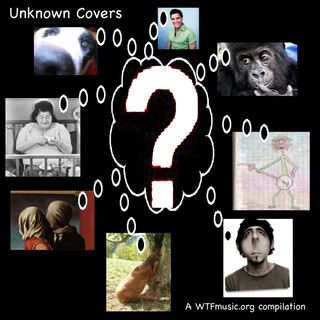
These songs are the result of wtfmusic.org's "Unknown Cover Marathon".
It started on June 16th, 2010 and ended on August 1st, 2010.
Anyone could post lyrics to a song without the names of the song-writers or bands, usually somewhat famous, and others would pick the songs they didn't know and attempt to cover them - of course in unconventional and strange ways.
The main thread for the marathon is located here:
http://wtfmusic.org/#topic/1276621890
If you would like to participate in a WTFM Marathon just visit wtfmusic.org and find out what marathon is currently running.
More about marathons in general (rules, questions, ideas) here -> http://wtfmusic.org/#topic/1261887100
Download the Unknown Covers Album here:
DOWNLOAD
Simply click on the play button above the Featured title.

These songs are the result of wtfmusic.org's "Unknown Cover Marathon".
It started on June 16th, 2010 and ended on August 1st, 2010.
Anyone could post lyrics to a song without the names of the song-writers or bands, usually somewhat famous, and others would pick the songs they didn't know and attempt to cover them - of course in unconventional and strange ways.
The main thread for the marathon is located here:
http://wtfmusic.org/#topic/1276621890
If you would like to participate in a WTFM Marathon just visit wtfmusic.org and find out what marathon is currently running.
More about marathons in general (rules, questions, ideas) here -> http://wtfmusic.org/#topic/1261887100
Download the Unknown Covers Album here:
DOWNLOAD
Ian Simpson - Bacillus / Noise Research
Artist: Ian Simpson WTF projects: Bacillus / Noise Research Tags: Experimental, noise, soundscape, ambient, electronic, musique concrete WTF Quality: deep and sensitive divings into elements of sound Lifespan 1980s - Country: UK  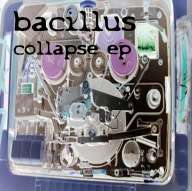 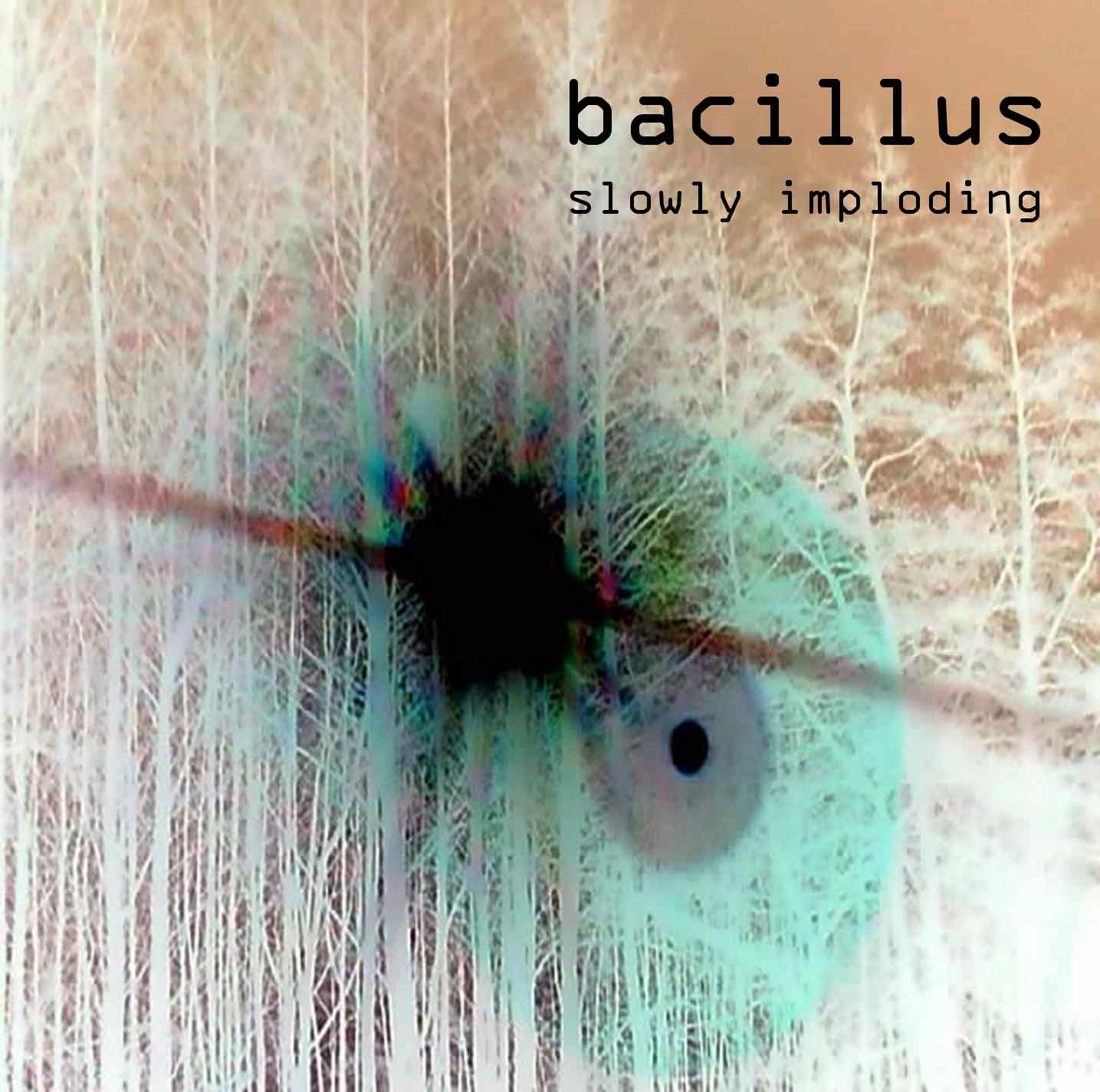 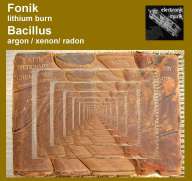 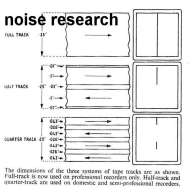   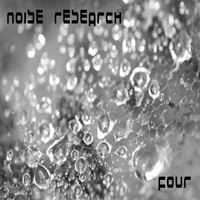   One artist, two pseudonyms. Bacillus and Noise Research. In the albums of Bacillus, long sweeping sound panoramas drift on through suspended moments. We travel through oceans  and float above the waves  we dive through forests, sit in stillness, then run through the trees, zig zag, return, lift up, and rustle through treetops  we enter abandoned factories inhabited by ghosts who slowly and imperceptibly wind up the machinery to unleash their rusty groans, the power flickers on and off, wind blows through, rats scurry by we are teleported into alien crafts and hear the telepathic language of beings who exist in the rift between dimensions. Spinning, low glow in darkness, traveling at immense speeds yet simultaneously stationary  we watch ages of history roll beyond to the tune of cybotic angels' voices  we walk down endless train tunnels, a barely comprehensible woman's voice reading off nonsense through the intercom system  fields of crystalline rainbow flowers  priest mages in long dark robes, faces shrouded, reciting incantations through the electricity in their fingertips, as they walk in circles  foreign planetary habitats  In the music of noise research, we enter the sounds, into the realm where sonic vibrations and electricity merge. 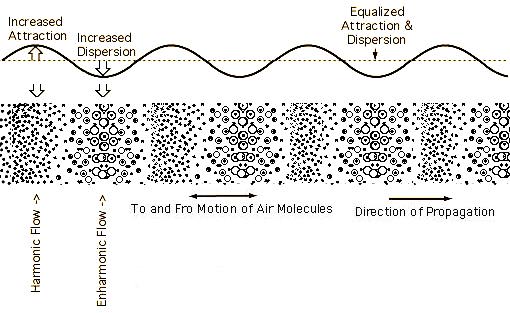 the sound of pulses cycling through a circuit, different switches, amplitudes, wave forms feedback loops of micro-frequencies  the static chaos of twisted frayed wires sending the signal in all directions, back around, splitting, joining, leaping, and dying.  a magnetic tape, wrinkled and warped, speed erratic, blurbing through vaguely recorded sounds  the synthesizer's guts revealed and subtly prodded  radio waves, sent through space, into satellites, bouncing between towers, striking antennae, all in a moment  the echoes of deep space emulated in the trans-dimensional winding of strings and quarks  You can find Bacillus and Noise Research music here: http://www.archive.org/details/FirstCircuit First Circuit (on EM) http://www.archive.org/details/CollapseEpem073 Collapse EP (on EM) http://www.archive.org/details/SlowlyImploding Slowly Imploding (on EM) http://www.archive.org/details/LithiumBurnem074 Lithium Burn (split with Fonik on EM) http://www.archive.org/details/NoiseResearchI Noise Research I (on EM) http://www.archive.org/details/NoiseResearchIi Noise Research II (on EM) http://www.archive.org/details/noise_research_experiment_III Noise Research III (on Bivouac) http://www.archive.org/details/emp064 Noise Research IV (on EMP) http://www.archive.org/details/ca347_gdnr Ocean Epicure (with Graham Dunning on Clinical Archives) http://www.archive.org/details/evoluon_amp045 Evoluon EP (AMP Recs) - Jeemobon | |
Subscribe to:
Comments (Atom)